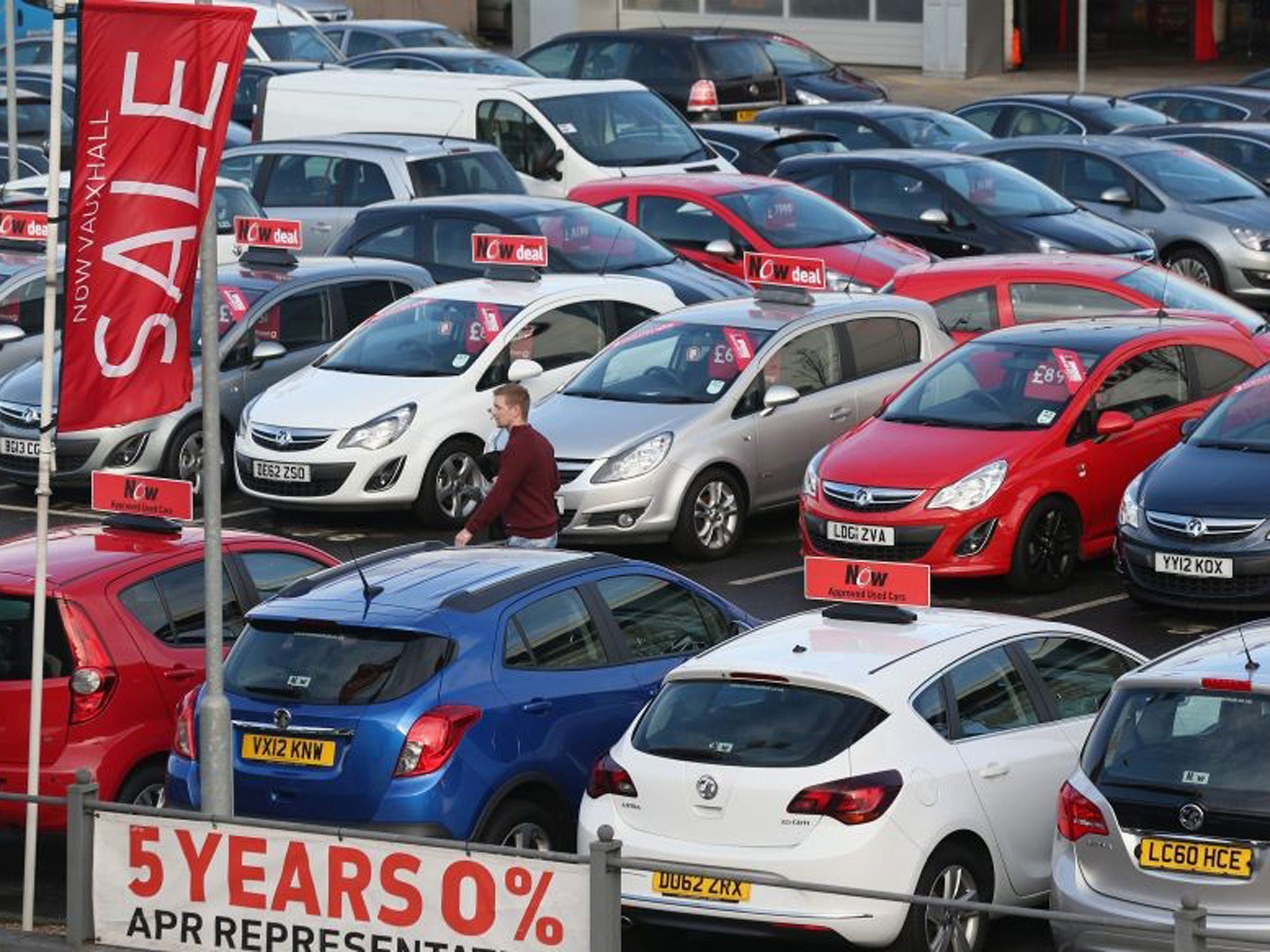UK car sales fall to lowest level since 1992
New registrations plunge 29 per cent amid the coronavirus crisis and Brexit uncertainty

Your support helps us to tell the story
From reproductive rights to climate change to Big Tech, The Independent is on the ground when the story is developing. Whether it's investigating the financials of Elon Musk's pro-Trump PAC or producing our latest documentary, 'The A Word', which shines a light on the American women fighting for reproductive rights, we know how important it is to parse out the facts from the messaging.
At such a critical moment in US history, we need reporters on the ground. Your donation allows us to keep sending journalists to speak to both sides of the story.
The Independent is trusted by Americans across the entire political spectrum. And unlike many other quality news outlets, we choose not to lock Americans out of our reporting and analysis with paywalls. We believe quality journalism should be available to everyone, paid for by those who can afford it.
Your support makes all the difference.The number of new cars sold in the UK last year fell by almost a third amid the coronavirus crisis and uncertainty over Brexit, figures show.
New car registrations dropped to just over 1.6 million, according to the Society of Motor Manufacturers and Traders (SMMT), which warned of a "rocky" few months ahead.
The trade organisation said a 10.9 per cent decline in December wrapped up a "turbulent" 12 months, which saw demand fall by 680,076 units to the lowest level of registrations since 1992.
New car sales fell by around 29 per cent on 2019, the biggest year-on-year decline since 1943.
The SMMT said that against a backdrop of Covid restrictions, an acceleration of the end of sale date for petrol and diesel cars to 2030, and Brexit uncertainty, the industry suffered a total turnover loss of more than £20bn.
Private vehicle demand fell by more than a quarter, amounting to a £1.9bn loss of VAT to the Exchequer, while sales of vehicles to company car fleets fell by almost a third.
The SMMT reported a "bumper" year for battery and plug-in hybrid electric cars, which accounted for more than one in 10 registrations, up from around one in 30 in 2019.
Demand for battery electric vehicles (BEVs) grew by 185.9 per cent to 108,205 units, while registrations of plug-in hybrids (PHEVs) rose 91.2 per cent to 66,877.
Most of these were company cars, indicating that private buyers need stronger incentives to make the switch, as well as more investment in charging infrastructure, especially public on-street charging, said the SMMT.
SMMT chief executive Mike Hawes estimated that £16bn needed to be spent on plug-in infrastructure because so many motorists do not have a drive and have to park on streets.
More than 100 plug-in car models are available to UK buyers, and manufacturers are scheduled to launch at least 35 this year, more than the number of petrol or diesel models planned, said the SMMT.
Mr Hawes said 2020 "will be seen as a 'lost year' for automotive, with the sector under pandemic-enforced shutdown for much of the year and uncertainty over future trading conditions taking their toll".
"However, with the rollout of vaccines and clarity over our new relationship with the EU, we must make 2021 a year of recovery.
"With manufacturers bringing record numbers of electrified vehicles to market over the coming months, we will work with government to encourage drivers to make the switch, while promoting investment in our globally renowned manufacturing base - recharging the market, industry and economy."
He said the last-minute Brexit trade deal was a "massive relief" to the automotive industry, avoiding a no-deal "disaster", but he added that companies will still face more administration and red tape.
Mr Hawes added that the fresh lockdown across England and ongoing tough restrictions across the rest of the UK will further impact the automotive industry, warning that the coming months will be "rocky".
PA

Join our commenting forum
Join thought-provoking conversations, follow other Independent readers and see their replies
Comments